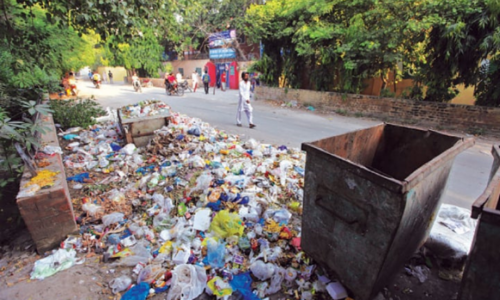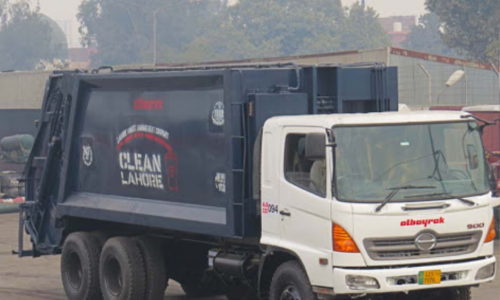LAHORE: In a bid to make the Lahore Waste Management Company (LWMC) an autonomous authority, the government has finalised the draft for the Lahore Waste Management Authority (LWMA) Act-2021.
Under the act, the LWMA will become an autonomous state-owned entity having powers of framing by-laws, rules and regulations and their enforcement to deal with cleanliness issues in a more effective way.
“There is the need to make the LWMC an authority (LWMA) as we finally reached the consensus that the company could not run with limited powers of levying fees, registering and licensing and weak enforcement capability. Currently, only regular employees of the MCL (Metropolitan Corporation Lahore) can be notified as enforcement inspectors,” a senior LWMC official told Dawn on Saturday.
“The power of hiring and firing of notified LWMC inspectors is still with the MCL and there is confusion due to dual chain of command. Moreover, public acceptance of a company levying fees is also low.”
The official said the formation of the LWMA would empower board/authority and the chief executive officer (CEO), enable the organisation to make comprehensive policies and regulations, develop strong enforcement skills, ensure provision of special magistrate to try cases for penalty and define powers of enforcement inspector.
“The LWMA will have an independent authority fund for sustainability, a singular chain of command with hiring and firing powers resting with it for all regular and in-sourced employees and shift to basic pay scales to reduce salary bills (contractual hiring will remain in place as in other authorities),” he maintained.
The authority would have powers to formulate, standards, procedures, process and guidelines for collection, disposal and management of the solid waste, levy fees for registration, licensing, collection and disposal of solid waste and other services, impose collection and disposal fee on private housing schemes for collection from societies and regulate persons engaged in collection of waste.
The LWMA will have adequate powers to procure machinery, equipment or material, grant a service contract for waste collection and constitute committees for performing specific functions of the authority.
Under the act, an enforcement inspector may take action in case of serious threat to the public health, safety, welfare or danger to life, property and environment in his area of jurisdiction. In addition to imposition of fine or initiating prosecution, the inspector will have power to suspend any work and seize the goods, provided that no inspector shall enter any residential premises without the permission of the occupier or owner or court.
Published in Dawn, August 23rd, 2021














































